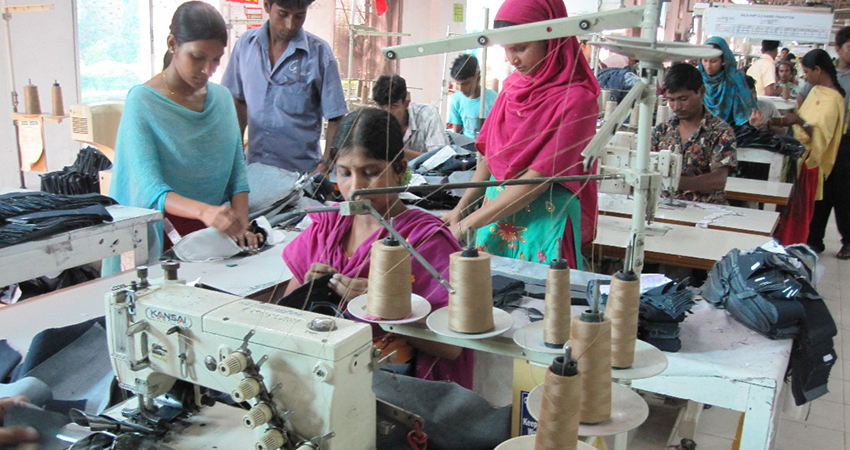A woman’s place is in the production management?

Women garment factory workers in Bangladesh. (Source: Wikimedia / Tareq Salahuddin)
Focus of the study
This project focuses on the question of social identity as constraints to women’s career advancement and firm productivity in Bangladesh’s garment sector.
The Bangladeshi garment industry was instrumental in expanding women’s employment opportunities in the urban job market. However, the positions available to women at factories remain mostly limited to those at the machine-operator level. Women’s social identity within the factory and outside continues to constrain female career advancement, and we know especially little about the barriers coming from within the worker’s family.
Using novel data from the Bangladeshi garment industry and exploiting variation created by an ongoing randomised controlled trial run by the submitters, this project will shed light on three questions: (i) How does women’s social identity within the family impact on their career advancement in developing countries? (ii) Which effect, if any, does women taking up low-level managerial positions have on the institution of the family? (iii) What, if any, are the effects of female role models in managerial positions on women’s social identity within the family?
Broader motivation for the research
Our study focuses on the two-way interaction of market institutions and the family by investigating the effects of women’s social identity in the family on female career advancement and productivity, as well as by analysing the impact of women taking up low-level managerial positions on their role within the family. The research contributes to our understanding of the potential impact of social identities on private sector development, and the potential processes of change in social institutions that private sector development can trigger.
This project has potential policy implications for the Bangladeshi government, garment factories and their associations as well as international clothing chains that the factories supply. If we find, as hypothesized, that cultural barriers to female career advancement within the family decrease firm productivity, and that females working in low-level managerial positions reduce these cultural barriers, all stakeholders could have an interest in projects that promote females to management positions, and in programmes that could reduce cultural barriers in households.
Research team
- Christopher Woodruff, University of Oxford
- Hannah Uckat, University of Oxford




